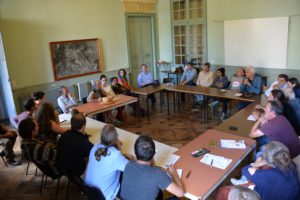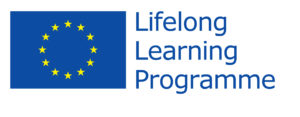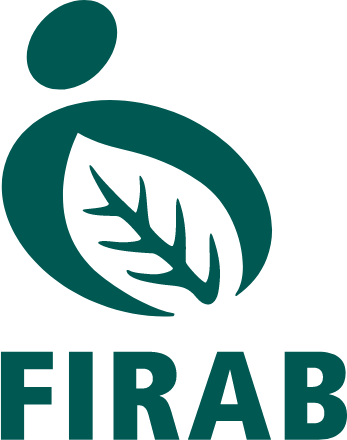La rete DARE (Democratizing Agricultural Research in Europe) ambisce a dare futuro all’agricoltura sostenibile tramite l’approccio agroecologico.
 L’obiettivo è quello di democratizzare la ricerca agricola e promuovere la ricerca e l’innovazione partecipativa.
L’obiettivo è quello di democratizzare la ricerca agricola e promuovere la ricerca e l’innovazione partecipativa.
 Democratising Agricultural Research in Europe (DARE)
Democratising Agricultural Research in Europe (DARE)
The project aim was to broaden the participation of adults operating in the wide context of food and agriculture and related research, in European cooperation in innovation activities. The project built a European network of low external input farmers, researchers and food activists involved in participatory research on the development of holistic methods and approaches on co-inquiry in food and farming,
The project widened the perspectives of the participants and increased awareness on the dynamics of European agricultural research, through the organisation of four partner meetings attended by a wide variety of actors whose assemblage enabled an eclectic learning environment.
Further to physical meetings that gathered participants not limited to partners’ organisations, throughout the project the partners shared information, in particular e-mail and teleconferencing, to discuss meeting modalities and the content development. This allowed to fine-tune partners, to co-define the project advancement and to strenghten their cohesion.
More ambitiously, the DARE project aimed at setting up a core group of organisations that could trigger a broader mobilisation on the agricultural research democratisation. The DARE manifesto will contribute to spread the DARE partners intentions and to advance its agenda in a larger and more widely shared platform.
Setting up an enabling environment for such a debate to occur can be considered one of the main DARE objectives allowing partners to discuss and share outcomes at both European and national policy levels.
As knowledge and mobilisation on these issues are scattered among farmers and other civil society organisations, the partnership made use of the visits to exchange knowledge among participants and translate individual or single group knowledge among participants and translate individual or single group knowledge into common action.
 L’agroecologia si rivela sempre più fondamentale per dare futuro all’agricoltura sostenibile.
L’agroecologia si rivela sempre più fondamentale per dare futuro all’agricoltura sostenibile.
La rete DARE (Democratizing Agricultural Research in Europe) ambisce a cambiare questo status quo. L’obiettivo è quello di democratizzare la ricerca agricola e promuovere la ricerca e l’innovazione partecipativa.
Il progetto è finanziato dal programma europeo Grundtvig e promosso dalla Fondazione Italiana per la Ricerca in Agricoltura Biologica e Biodinamica (FIRAB), il Centro per l’Agroecologia, l’Acqua e la Resilienza (CAWR) in Inghilterra, l’associazione francese Biodiversità Scambio e Diffusione di Esperienze (BEDE) e la Federazione Romande per l’Agricoltura Contrattuale di Prossimità (FRACP). DARE è giunto al terzo incontro tenutosi all’inizio di febbraio in Svizzera, dopo le riunioni di Roma e Montpellier nel 2014.
La ricerca classica non considera l’approccio disciplinare e partecipativo proprio dell’agroecologia, basato sul coinvolgimento degli agricoltori in tutte le fasi della filiera e la condivisione delle conoscenze e delle competenze. È troppo settoriale, centralizzata e focalizzata sul metodo “top-down”. Inoltre, soddisfa in gran parte le esigenze agroindustriali più che quelli dell’agricoltura contadina ispirate alla sovranità alimentare. La visione di DARE è quello di individuare gli strumenti e le modalità per appropriarci del nostro sistema alimentare (e della ricerca che l’accompagna) per valorizzare il ruolo degli agricoltori e, così sostenere la trasformazione sociale.
Ma la ricerca convenzionale non comprende abbastanza in profondità le dinamiche contadine sul tema. È quanto emerso con forza nel corso del Forum Internazionale sull’Agroecologia tenutosi in Mali a fine febbraio.
L’incontro di quattro giorni in Svizzera, con tre visite sul campo a iniziative comunitarie di agricoltura periurbana, hanno portato a lievitare la riflessione di DARE e a una prima proposta di strategia sulla democratizzazione della ricerca destinato a concretizzarsi nella quarta riunione programmata per l’inizio dell’estate in Inghilterra.
 Grundtvig DARE Meeting on Democratising Agricultural Research in Europe
Grundtvig DARE Meeting on Democratising Agricultural Research in Europe
Rome
Saturday 1st – Monday 3rd February 2014
Dear friends,
following our consultations, FIRAB is pleased to present the first Grundtvig DARE (Democratising Agricultural Research in Europe) meeting program and format.
The meeting will be held in Rome, between Saturday 1st and Monday 3rd February 2014. It will mainly focus on knowing each other and develop a common platform in an enabling environment. It will provide an opportunity for sharing actual experience of on-farm innovation processes based on good action-research practices and debating how to effectively democratize the agricultural research governance, modernising and adapting the methodologies of agricultural research to empower marginalised actors in the food system.
As indicatively agreed during previous consultations, the program will mainly include moments for 1) internal discussion and strategy-making; 2) exchange of (mainly) on-farm experiences; 3) meetings with international organizations working on or with an agenda for participatory research.
FIRAB proposes to articulate the program as follows (names are sometimes identified for discussion kick off and facilitation):
|
Saturday 1st Feb Internal discussion |
Sunday 2nd Feb Field visits to farms |
Monday 3rd Feb International Institutions |
|
9.30
City of the Alternative Economy (CAE) Chair: Luca Colombo – welcome to delegations
|
9.30
Meeting at CAE
Explanation of rationale for sites selection (Luca Colombo) Bus transfer to Onorati farm. Onorati. Key topics: Peasants’ seeds and breeds
|
9.00
Meeting at CAE
Train transfer to Bioversity International/Maccarese (20min)
|
|
11.30
Chair: Michel Pimbert – St. Ulrich meeting presentation (video?)
|
12.30
Bus transfer to Agricoltura Nuova cooperative farm
|
10.00 Chair: Alessandro Meschinelli Meeting with Bioversity Intl jointly with GFAR Key questions: Role of different actors |
|
13.00 lunch CAE |
13.00 – 14.30 Lunch AGRICOLTURA NUOVA |
13.30 lunch CAE |
|
14.30 – comparing multiple facets of participatory research based on concrete experiences’ presentations according to shared format – convergences from variety: finding commonalities in key features of processes and innovations emerging from cases – moving forward together along shared direction(s): building on strengths, addressing weaknesses collectively. – Identification of key common goals
|
14.30
Agricoltura Nuova. Key topics: Farming and marketing innovations in organic agriculture
|
15.00 but other options are welcome) – debriefing and comments from field visits and international research bodies interviews – individual engagements
|
|
17.30 -conclusion of first day |
17.30 – conclusion of second day |
17.30 Closure |
Methodological considerations
The meeting will benefit and be largely informed by previous gatherings on these issues, notably the St Ulrich workshop on Democratising Agricultural Research for Food Sovereignty (22-25th Sept 2013), trying to capitalize existing opportunities and consensus, and more broadly relies on farmer-to-farmer exchanges for mutual learning, sharing field practices that work in different agroaecological, cultural and economic contexts and lessons learnt from policies and institutional dynamics.
Mainstream research is under criticism and revision by scientific and donor institutions themselves, while opportunities to build a European/national/regional network for farmers’ innovation and cooperative research are opening up: the momentum for change is there and we need to mainly focus on actions needed for pursuing an alternative research agenda driven by food sovereignty principles, agrarian peasant cultures for a social and environmental renewal, dialogue and co-enquiry between formal researchers and on-farm innovators.
Given the variety and wealth of experiences in collaborative research, with various degrees/intensity of participation – ranging from intensive consultation of stakeholders to farmer managed research – partners and allies need to structure the exchange of experiences in order to find common denominators and allow comparison towards the building of a common definition of political goals and a common understanding of key operational concepts.
To this effect, FIRAB proposes to each participant willing to bring his/her own experience to the DARE meeting the following format of presentation (First day):
- Where, when, with whom the research took place: time, scale, main actors
- What was the problem to be addressed
- Why was the participatory mode of research adopted
- How and to what extentfarmers whereinvolved in the different stages of research(problem definition, methodology selection, implementation, evaluation, dissemination)
- Main results (both physical and less tangible)
- Relevant funding opportunities and political challengesMoreover, we need in the first day to be consistent with our “democratisation” principles and jointly decide in which form, by whom and through which process the workshop reporting will be carried out, in orderto ensure that the meeting does not only comply with administrative requirements but also ensures useful documentation for follow up action. Proposals are welcome!

